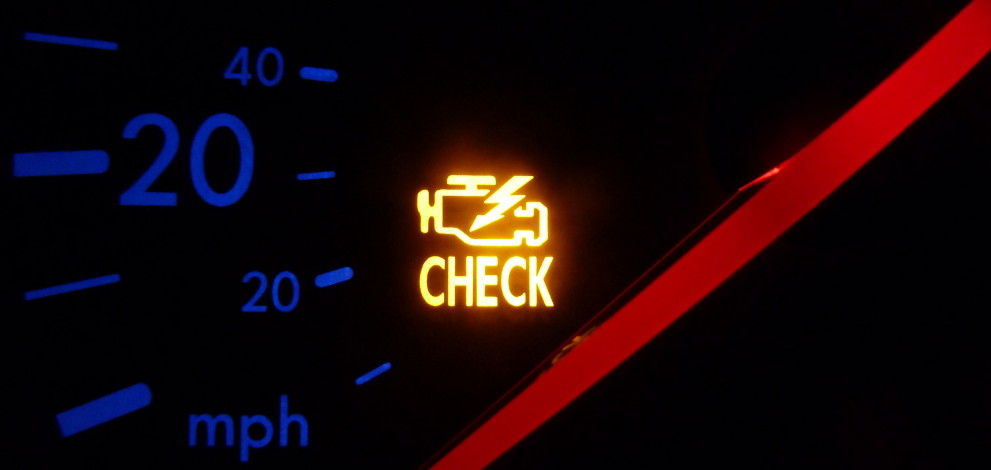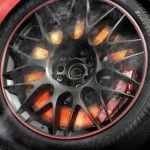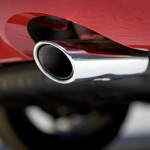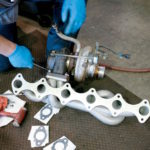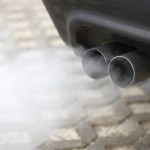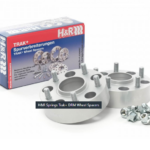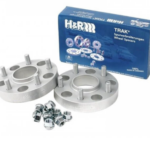The quality of your vehicle's exhaust fumes can tell you a lot about the condition of your engine.
Sometimes, all you need is a quick check of the fume colour to figure out exactly your engine is dealing with.
So turn your key in the ignition, step back and observe.
BLUE EXHAUST FUMES

What does it mean?
If your exhaust fumes are blue, your engine is burning oil.
Motor oil lubricates your engine's moving components. But when your valve guide seals, piston rings or cylinders wear out, oil can make its way into the combustion chamber where it will burn up with the fuel.
If your engine is a diesel, the reason behind the blue fumes could be that your oil levels are too high.
If your engine is turbocharged, the blue fumes could mean that your blower needs to be replaced.
What are the consequences?
When your engine burns oil, you're faced with excessive oil consumption. Chances are, you're also experiencing rough starts.
And if this issue isn't fixed, you will seriously damage your vehicle's spark plugs.
Burning oil is also terrible for the environment.
What do I do?
If the oil leak is minimal and your vehicle is old, just make sure to top up your oil regularly.
If that's not the case, you need to visit your service technician, urgently. The work and replacement parts will be expensive, so brace yourself.
GRAY EXHAUST FUMES

What does it mean?
If your vehicle is burning gray exhaust fumes, the reason could be that your engine is burning oil. If this is the case, the consequences and precautions will be the same as the ones outlined for blue fumes.
Another reason could be that a faulty transmission vacuum modulator is leaking automatic transmission fluid to your engine. And there the fluid burns up with the fuel, much the same way as oil.
Or you could have a problem with the Positive Crankcase Ventilation system, like a faulty valve.
What are the consequences?
The PCV system is responsible for recycling harmful exhaust emissions into the combustion chamber. A faulty system valve will lead to a buildup of pressure, which in turn will lead to an oil leak.
And again, while this is bad for your car, it's also bad for the environment.
What do I do?
The good news is that PCV valves are easy on the pocket. They are also easy to replace - it's a fix you can do on your own.
But if you've replaced your PCV valve and your exhaust fumes are still gray - you probably have an oil leak. In this case follow the steps for dealing with blue exhaust fumes.
BLACK EXHAUST FUMES

What does it mean?
Black exhaust fumes are usually the easiest to diagnose and fix. They signal that your engine may be burning too much fuel. Maybe you have a clogged fuel return line, or even a clogged air filter.
If your engine is a diesel, you could be using the wrong grade of fuel. Black exhaust fumes are also a sign that your diesel engine is overheating.
What are the consequences?
Black exhaust fumes are caused by an incomplete combustion of fuel. And this causes your engine to burn more fuel than necessary.
And, while the list of consequences isn't very threatening... you shouldn't avoid this issue with the hope of saving money. Your fuel economy is down in the dumps, and that's costing you - daily.
What do I do?
Start by checking your intake components, including your air filter, the sensors, the fuel injectors and the fuel pressure regulators. Make sure nothing is clogged or malfunctioning.
You may also have to tinker with your ignition timing to resolve the problem.
WHITE EXHAUST FUMES

What does it mean?
If the white fumes coming out of your exhaust are very thin and light - there is no cause for concern. This vapor is a normal side effect of condensation in your exhaust system.
But if the white fumes are heavy and thick, it's probably because your engine is burning coolant.
If your engine is a diesel, the fumes could be caused by incorrect ignition timing, or a faulty injection system.
What are the consequences?
If your engine is burning coolant, it's not being cooled properly. And if it's not being cooled, it's overheating.
Leaked coolant can also get mixed in with your motor oil, and let's just say - that's not good.
Overheated engines are very bad news - they are prone to serious, serious damage.
What do I do?
The cause could be a blown head gasket, a damaged cylinder head, or even a cracked engine block. The repairs will be costly, but should not be ignored.
If you don't address the problem, it will get worse, continually. So don't delay taking your car to a mechanic.
Coloured exhaust fumes are a sure sign that your engine is struggling.
But if you diagnose and repair the problem on time, your car and the environment, will thank you for it.


